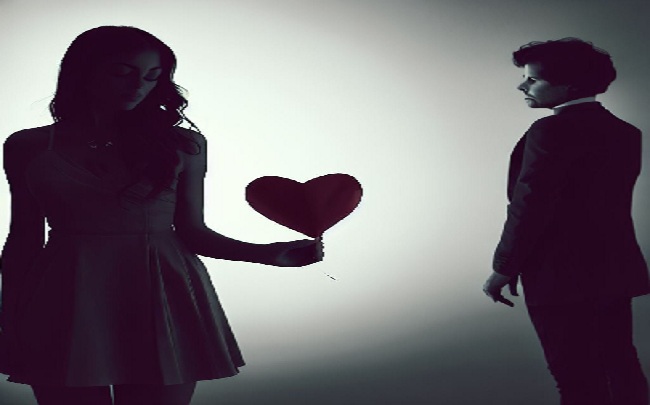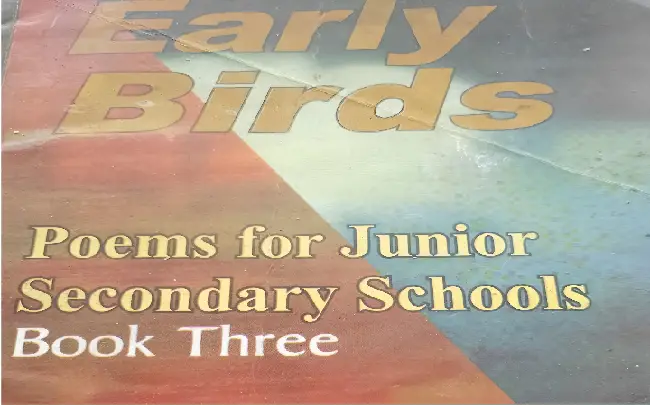Unrequited poems express the heart-rending emotions experienced by many, yet the poems are seldom understood in their full depth and complexity. Through time, poets and authors have grappled with these bitter-sweet writings; casting into words the ineffable feelings of profound affection, longing and heartbreak engendered by one-sided love. Drawing from the spring of human experiences and psychological perspectives, we delve deep into the realm of unrequited poems, dissecting their emotional impacts, and the powerful spectrum of sentiments they harbour within.
We will also explore different legendary poems exemplifying unrequited love and traverse through their different epochs and cultures, extrapolating the common themes, metaphors and the subtle nuances of the language usage.

Understanding Unrequited Poems: Popular Themes
Unrequited Love: A Heart’s Torment in Poetry
Unrequited love, a pain as old as love itself, is a common theme in poetry. It creates a resonating echo of longing, pain, and acceptance. Poets use their verses to explore the complexities of love that are not reciprocated, weaving the emotional affliction into a tapestry of words.
An example is found in the works of English poet Sir Thomas Wyatt, known for his eloquent sonnets, which often explore unrequited love. His poem “I find no peace” encapsulates the feelings of loving someone who does not return that love with lines like,
“And hold my heart to be still as a stone / Yet cannot stand for fear.”
This effectively communicates the conflicting emotions felt by those in the throes of non-reciprocal love.
“I love you but you don’t love me” Poems
The “I love you but you don’t love me” poems are a sub-genre of unrequited love poetry, reflecting the dichotomy of love given and not returned. The underlying agony and yearning are often palpable in these poems as the poet mourns the unrealized relationship.
A classic example of this is Emily Dickinson’s “I died for Beauty—but was scarce“, where the speaker suffers because they cannot make their feelings known to the person they love. These poems often express a longing for a reciprocation that may never come and an acceptance of a love that is not mirrored.
Implications of Unrequited Love
From a psychological point of view, unrequited love can lead to a variety of negative emotional states including jealousy, frustration, rejection, and emotional pain. This can cause significant emotional trauma and self-esteem issues, with the person often blaming themselves for not being loveable or good enough.
The anguish described in the “I love you but you don’t love me” poem resonates with many because it captures the universal, yet profoundly personal, experience of unreturned love. Some psychologists suggest that being in love with someone who does not love you back is a type of ‘romantic limbo’, a state of being in love but not being able to fulfil that love.
Effect on the Individual: Pain, Longing, and Hope
The emotions experienced in unrequited love are not solely negative. Amidst the pain and longing, there is often a glimmer of hope—a lingering belief that the love might eventually be returned. Poems capturing this yearning often use metaphors of light and dark, symbolising the lover’s hope against the backdrop of their despair.
For instance, W. H. Auden’s “Funeral Blues” carries undertones of unrequited love, exhibiting the lover’s despair—but also subtextual hope—in lines such as “He was my North, my South, my East and West”. This optimistic bent, found within the bleakest depictions of unrequited love, is a testament to the resilience of the human spirit, even in love’s starkest landscapes.
Exploring the timeless theme of unrequited love, “I love you but you don’t love me” poems have imprinted themselves firmly within the literature realm. They echo a sentiment that, although universally experienced, always leaves a unique mark on each individual. Through these odes of heartache and longing, one can uncover a sense of perseverance, resilience and ultimately, the enduring nature of love itself.
Famous Poems Tackling Unrequited Love
Noteworthy Poems of Unanswered Love
The notion of unreciprocated love is a reality where one’s affection isn’t returned by the object of their admiration. It is a frequently visited subject within the world of poetry. More often than not, these verses hold an underlying tone of sorrow and yearning which stirs emotions and creates a profound connection with the readers.
Shakespeare’s Sonnet 130
The English bard, William Shakespeare, often penned verses exploring themes of unrequited love. One such piece is “Sonnet 130,” also known as “My Mistress’ Eyes are Nothing Like the Sun”. Here, Shakespeare uses an unusual method of expressing his love, comparing his beloved’s features not to nature’s wonders, as was the convention of his time, but to their more realistic countenances. In this way, Shakespeare showcases his unrequited love in a more grounded, relatable way.
John Keats’s “La Belle Dame sans Merci”
John Keats delves into the world of unrequited love with his poem, “La Belle Dame sans Merci”. This haunting work illustrates the story of a knight left bereft and hopeless by a mysterious and enchanting woman who does not return his affections. Keats intertwines elements of nature, the supernatural, and the tragic passion of the human heart to depict the despair of unfulfilled love.
Emily Dickinson’s “I Can’t Live with You“
Reclusive American poet Emily Dickinson’s verse, “I Can’t Live with You”, explores the torment of loving someone unattainable. Ostensibly speaking of a challenging domestic life, Dickinson’s poem also reads as an agonising expression of longing where living with or without the person she loves seems equally impossible. The choice of words and the recurring theme of desperate affection make this a heartbreaking piece on unrequited love.
Untitled Work by Lang Leav
Moving into more recent times, Lang Leav, the modern ‘queen of unrequited love poetry’, is well-known for her ability to encapsulate the essence of one-sided love. In an untitled piece popularly known on the internet, she writes “I love you,’ I say… ‘I know,’ you reply”. In a few words, Leav captures the pain of expressing the love that is acknowledged but not reciprocated.
Through different metaphors, symbols, and emotive language, poets express the depth of unrequited affection. Serving as reflective surfaces, these works unveil the complex human experience of offering love without receiving love in return, presenting a swirl of longing, sorrow, hope, and agony.
Writing Your Own Unrequited Love Poem
The Importance of Unrequited Love Poems
Commonly referred to by the public as “I love you but you don’t love me” poetry, unrequited love poems proficiently articulate the powerful emotions associated with one-sided affection. These works have been stitching the fabric of literature for centuries, expertly conveying mixed feelings of desire, frustration, heartbreak, and occasionally hope. They offer poets a chance to process their emotions and readers the comfort of knowing their feelings are shared and understood.
A critical aspect of crafting an unrequited love poem is utilising personal experiences. Personal genuine feelings and experiences bring authenticity and relatability to your piece, greatly enhancing its impact. Remembering specific moments, revisiting emotions associated with the person in question, and expressing how these elements affected you can help in eliciting emotional responses from readers.
Use of Literary Techniques and Poetic Structures
To give life to your verses, a variety of literary techniques can be employed. Metaphors and similes play a crucial role in making your feelings palpable; they offer readers a vivid image or situation to relate to. Alliteration and assonance can give rhythm and musicality to your poems. Using structures such as sonnets can offer familiar frameworks for your poems while allowing creative freedom in expressing your emotions.
Language and Metaphors in Your Poems
The choice of language in your unrequited love poems is integral in portraying your emotions. Use emotionally-charged words and phrases that strike a chord with the readers. Metaphors, in addition, can add depth to your poem. By likening your feelings or situation to a universally understood concept or phenomenon, the readers can comprehend the intensity and nuances of your experiences.
Unrequited Love Poem Prompts
If you struggle to begin, you can consider starting with prompts. Prompts such as, “The moment I realised my feelings were not returned…”, or “The lonely nights when your absence is most felt...” can help initiate your thought process, guiding you towards expressing those dormant feelings in your heart.
Remember, the key to an emotive unrequited love poem does not lie in grandeur or complexity, but in authenticity. Reader empathy stems from genuine emotion, so let your feelings guide your pen. Poetry can indeed be the perfect release from the grasp of a love that remains unreturned.
Check out one of our popular works on unrequited poems: When Was I Your Man
The Curtain
Drawing inspiration from the stirring narratives of classical and contemporary poets who’ve woven magic with their words, we venture into the practical guide for crafting your own poetry of unrequited love. Encouraging you to unleash your inherent creativity, the writing techniques, structures and prompts elucidated strive to serve as a robust scaffold for your poetic pursuits.
Alongside, the effective usage of language and metaphor, exemplary poems of successful poets aim to stir and propel your creative instincts. Far from mere words, your verses of unrequited love might just resonate with other hearts and help alleviate their loneliness. Therefore, remember, every word you pen brings us one step closer to understanding the nuances of this profound emotion called Love.




